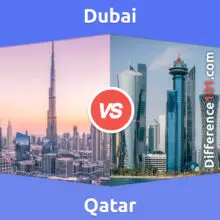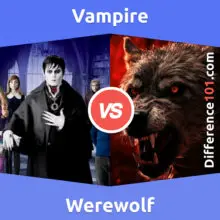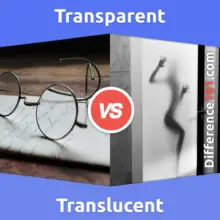A CV is a detailed document that chronologically lists your education and achievements. A resume, on the other hand, is a concise document that contains only the details necessary for the current job it is prepared for. A CV is usually longer than a page, whereas a resume is compact and accommodates on a single page.
Table of Contents
Explaining Curriculum Vitae vs. Resume Definition
Have you ever been wondering what a CV or Resume Is? These definitions will help you in understanding the difference between CV and Resume:
What Is A CV? Definition Of Curriculum Vitae
Curriculum vitae translates to the “course of life” in Latin. It is a detailed, written overview of one’s educational and work life.
What Is A Resume? Definition Of Resume
A resume is a concise summary of one’s educational and work achievements. It is used for displaying one’s background, including previous job experience in a similar field.
What Is The Purpose Of A CV And A Resume?
Before proceeding further, it is essential to know the primary purpose of a CV and a resume.
What Is The Purpose Of A CV?
The purpose of a CV is to market your skills and professional competence to the company in a way that the employer sees your appointment as an asset acquired.
What Is The Purpose Of A Resume?
The purpose of a resume is to speak for your accomplishments while you are not there. It has to convince the job provider to hire you.
CV vs. Resume Similarities
- Both CV and resume describe the educational background of a person.
- They can be used for securing new employment.
- They list out the relevant job experience gained by the person.
CV vs. Resume Differences
- A CV vs. a resume is lengthier as it involves in-depth information.
- CV involves detailed information about one’s life, whereas the resume only displays the highlights.
- A CV is not flexible, while a resume can be modified to include only the details relevant to the current position.
- A CV is written chronologically, whereas a resume can or cannot follow a chronology.
- CV has a broader scope than a resume.
- A CV focuses on highlighting your entire career while a resume focuses on highlighting your professional skills.
Which Is Better, A CV, Or A Resume?
It entirely depends on the employment position one is applying for and the stage at which one is in his career. For a more straightforward job position, a resume will do as it only summarizes your educational qualification and professional experience. But for a higher managerial position, a CV would be best as it details your professional career minutely. A Resume is great for freshers, whereas as you add more promotions to your credit, you’ll need a CV to present yourself well.
What Does A Resume Or A CV Stand For?
CV is an abbreviation of Curriculum Vitae, which is a Latin word that means ‘course of life’. Hence, it details the course of your professional career and can be a bit lengthy. In contrast, a resume that comes from the French vocabulary meaning ‘summary’ is a brief document of your expertise in career.
How Do I Write A CV Resume?
Pick the best format as per your job needs. Add your contact information first and start with filling in your personal information and educational qualification. Then list your professional expertise and career achievements. Mention some of the relevant skills that can help you secure a particular job. Complement it with a cover letter.
What Is Included In A CV?
A CV must include contact information, personal information, education, work experience, and job skills. Additional sections must be added if one has any awards, certifications, or any associations to his credit.
How Many Pages Should A CV Be?
Since CV is for the more experienced ones, a two-page CV would be enough for a mid-career professional. For the more experienced ones with many accomplishments, a three-page CV would do.
Is A CV A Cover Letter?
No, a CV is not a cover letter. A cover letter is a concise document preceding a CV which details the achievements mentioned in the curriculum vitae.
What’s A Good Summary Of A Resume?
A good summary of a resume would be a line or two mentioning your best career achievements to-date along with your best skills to secure the job.
What Should Not Be Included In A CV?
Anything irrelevant to the job hiring aspect should not be included in a CV like untrue or irrelevant skills, physical description, private information like social security number, family details, or conclusion statement.
What Do Employers Look For In A CV?
Employers look for the value one can add to the company with his achievements. They also scan for the individual strengths or special skills to screen out the rest of the similar-looking average talent.
Do You Need A Cover Letter For A CV?
Yes. It is like a synopsis of your professional achievements and helps decide the employers if they should read the further 2-3 page long document. Lack of a cover letter might screen you out in a bid to save the company’s precious time.
Is The Photo Required On CV?
No. It should be added only when asked for or while applying for careers like actors or models.
Observing CV And Resume Difference At A Glance
| Basis | CV | Resume |
|---|---|---|
| Length | It is lengthy. | It is compact. |
| Details | It is incredibly detailed. | It only includes highlights. |
| Layout | It follows chronology. | It might or might not follow chronology. |
| Scope | It has a broader scope. | It has a narrower scope. |
| Flexibility | It isn’t flexible. | It is flexible. |
Comparison Chart

Comparison Video
Choosing CV Versus Resume For Your Needs
You must use a resume at the beginning of your career since you don’t have much experience to display. Once you gain a voluminous experience, you can use a CV for applying to the top-level positions and a resume for applying to the jobs requiring a specific skill-set as certain aspects of your work experience can be highlighted in a resume.







